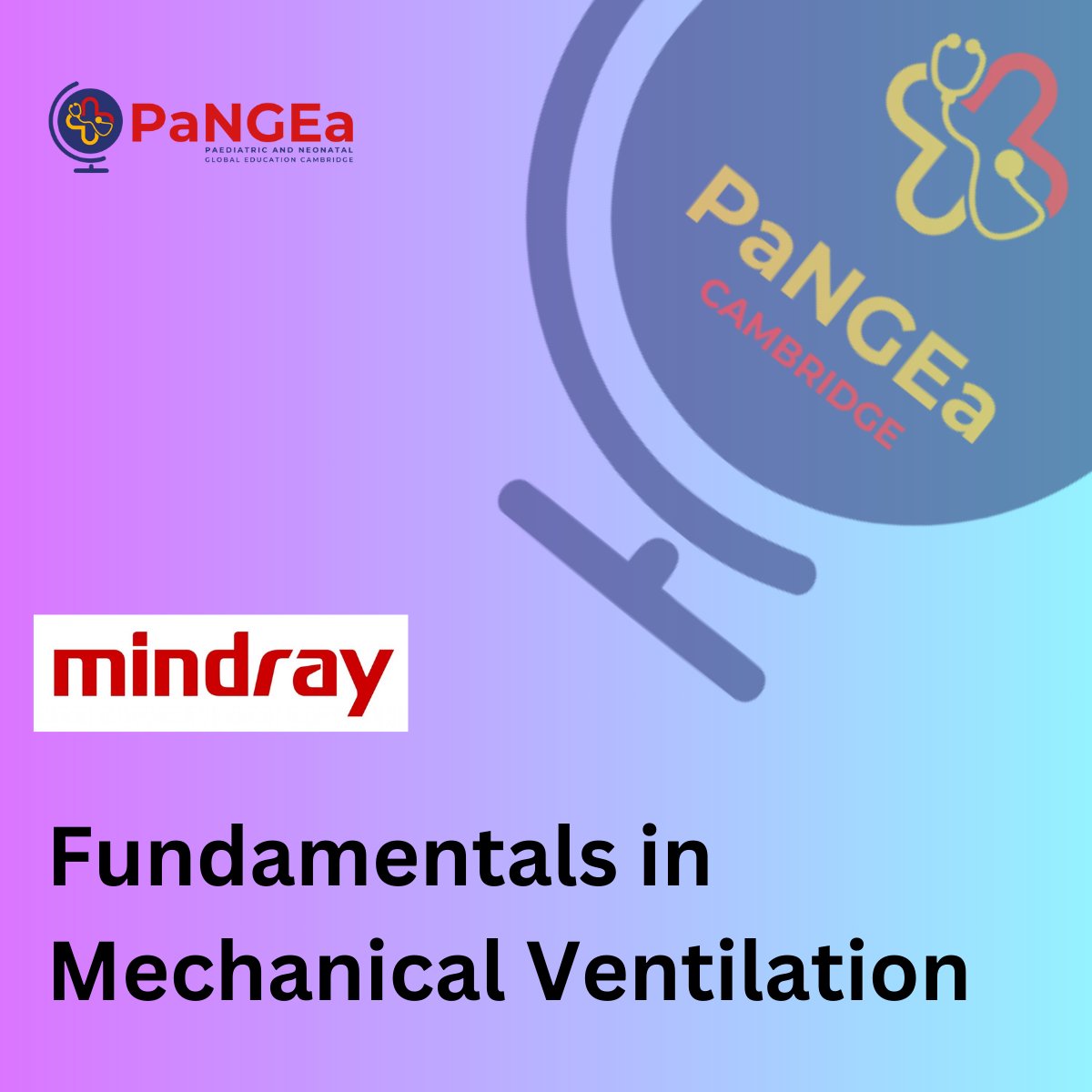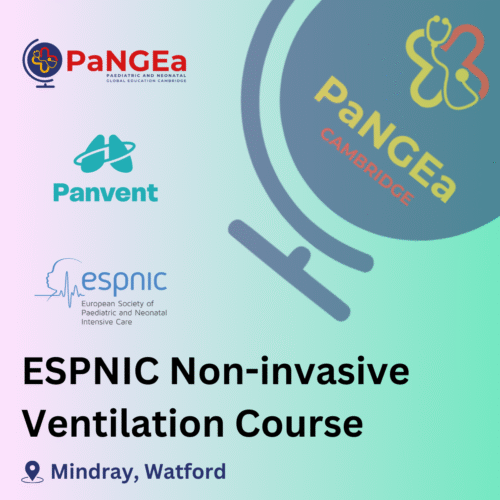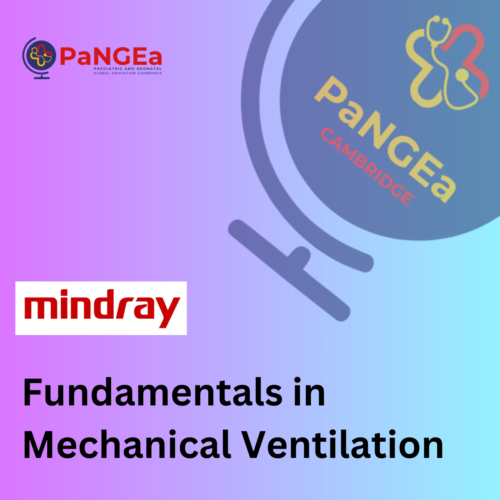
Fundamentals in Mechanical ventilation is an interactive and practical course that will provide delegates with the basic skills to help look after ventilated patients in PICU.
This course consists of a mix of interactive sessions and hands-on practice on the ventilator. It is aimed at doctors and nurses willing to start acquiring the expertise required to look after patients on the ventilator. From the patient with no respiratory diagnosis to the main causes of respiratory failure.
Fundamentals in Mechanical ventilation is an interactive and practical course that will provide delegates with the basic skills to help look after ventilated patients in PICU.
This course consists of a mix of interactive sessions and hands-on practice on the ventilator. It is aimed at doctors and nurses willing to start acquiring the expertise required to look after patients on the ventilator. From the patient with no respiratory diagnosis to the main causes of respiratory failure.
At the end of this course, delegates will be able to understand the modes of invasive mechanical ventilation commonly used in PICU and will have covered simple physiology behind this mode of life support in different clinical scenarios.
They will be able to understand how the ventilator works in an evidence-based and physiology-guided learning process.
This course is recommended prior to attending the more advanced ESPNIC Mechanical Ventilation Course. With both courses, delegates will have the required skills to guide the ventilatory strategies of the more complex patients.
Delegates
All doctors and nurses with some exposure to the critical care patient. This course is focused on the paediatric and neonatal population but most of the skills covered can be applied to adult population, as the age of the PICU patient can reach the adulthood.
Group distribution
There will be 8 to 10 delegates per room and one or two members of faculty (accredited instructor + instructor in practice).
Request for endorsement has been submitted to the European Society for Paediatric and Neonatal Intensive care (ESPNIC).
- Understanding basic physiology applied to mechanical ventilation.
- Familiarization with most common modes and their basic taxonomy.
- Programming the most widely-used conventional modes.
- Monitoring patient on the ventilator.
- Understanding basic physiology of paediatric acute and chronic obstructive respiratory failure.
- Programming and troubleshooting the ventilator in the most common obstructive diagnosis in paediatric practice (asthma, bronchiolitis, bronchopulmonary dysplasia).
- Overview of oxygenation physiology applied to the Paediatric Acute Respiratory Syndrome.
- Basic programming and ventilation assessment for a patient with pARDS.
1. Physiology:
a. Static and Dynamic properties of the respiratory system.
b. Compliance and resistance.
c. The time-constant.
d. High vs low pressure generators.
2. Taxonomy:
a. Why is it important?
b. Basic taxonomy.
3. Conventional modes:
a. Volume control vs pressure control ventilation.
b. Continuos mandatory ventilation.
c. Intermitent mandatory ventilation.
d. Specific modes: SIMV and all IMV, PRVC.
4. Ventilation monitorization.
5. Obstructive pattern:
a. Physiology of lower airway obstruction.
6. Restrictive pattern
7. Interactive cases
Day 1
| Session | Room | |
| 8.30 – 9.00 | Registration. Welcome to course. |
Reception desk |
| 9.00 – 10.30 | Conventional modes | Breakout spaces |
| 10.30 – 11.00 | Coffee break | Common coffee areas |
| 11.00 – 12.30 | Basic respiratory physiology | Main room |
| 12.30 – 13.30 | Lunch | Kitchen / Dining |
| 13.30 – 15.00 | Ventilation monitoring | Breakout spaces |
| 15.00 – 15.15 | Coffee break | Common coffee areas |
| 15.15 – 16.30 | Obstructive pattern (I) | Breakout spaces |
| 16.30 | Close of Day 1 | Main room |
Day 2
| Session | Room | |
| 8.30 – 9.30 | Day 1 recap and questions | Break out spaces |
| 9.30 – 10.30 | Obstructive pattern (II) | Main room |
| 10.30 – 11.00 | Coffee break | Common coffee areas |
| 11.00 – 12.30 | Oxygenation | Breakout spaces |
| 12.30 – 13.30 | Lunch | Kitchen / Dining |
| 13.30 – 15.00 | Restrictive pattern | Breakout spaces |
| 15.00 – 16.30 | Interactive cases. Q&A |
Breakout spaces |
| 16.30 | Close of the course | Main room |
Course dates and availability
-

ESPNIC Non-invasive Ventilation Course – 18th – 19th September 2025
£400.00 – £500.00Available
Book course This product has multiple variants. The options may be chosen on the product page Details -
Course fully booked

Fundamentals in Mechanical Ventilation 21-22 November 2024, Mindray, Watford
£200.00 – £300.00Fully booked
What delegates say about this course
We are running this course for the first time in November and will be adding testimonials post event.
